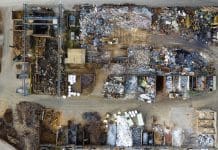The secretary of state for energy security and net zero has approved the development of phase four of the Hornsea Offshore Wind Farm
Ørsted Hornsea Project Four Limited submitted the application to the Planning Inspectorate on 29 September 2021, and it was accepted for examination on 27 October 2021. Ørsted is the Danish wind power firm behind the development.
During the examination, the public, statutory consultees, and interested parties were given a chance to present evidence to the Examining Authority. Recommendations were then put forward to the secretary of state on 22 November 2022. Five months later, the application was finally given the green light.
What will the Hornsea Offshore Wind Farm feature?
The Hornsea Offshore Wind Farm project, located off the Yorkshire coast, will feature 180 large turbines, capable of generating green electricity equivalent to powering one million homes.
With a capacity of 2.6 GW, it is the second-largest wind farm to receive government approval, following the Hornsea Three project, which has a capacity of just over 2.8 GW. The operational first two phases of the Hornsea development have capacities of 1.2GW and 1.3GW, respectively.
This application is the 126th Nationally Significant Infrastructure Project and the 73rd energy application to undergo examination by The Planning Inspectorate.
“The Planning Inspectorate has now examined more than 100 nationally significant infrastructure projects since the Planning Act 2008 process was introduced, ensuring local communities have had the opportunity of being involved in the examination of projects that may affect them,” said The Planning Inspectorate’s chief executive, Paul Morrison.
“Local communities continue to be given the opportunity of being involved in the examination of projects that may affect them. Local people, the local authority and other interested parties were able to participate in this six-month examination,” he added.
Demand for clean energy is on the rise
Energy Secretary Grant Shapps granted approval for the project following the transfer of decision-making authority from the UK’s planning authority to the government earlier this year.
The delay has sparked renewed demands from the energy industry to streamline the planning system for faster progress of offshore wind farm projects.
Shapps acknowledged that the project would have environmental implications but emphasised that the pressing requirement for low-carbon energy infrastructure outweighs these concerns.
“Offshore wind projects such as Hornsea Four are key to the UK’s energy security and will bring billions of pounds of investment into the UK, provide low-cost electricity for consumers and thousands of high-quality jobs,” concluded a spokesperson for Ørsted.














